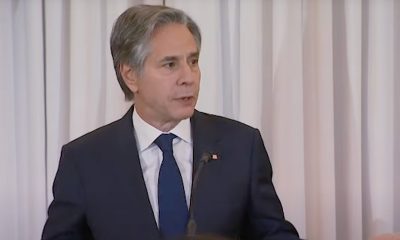National
Gay diplomat presses LGBT issues at int’l conference
Guest focuses on hate crimes, Pride celebrations in remarks
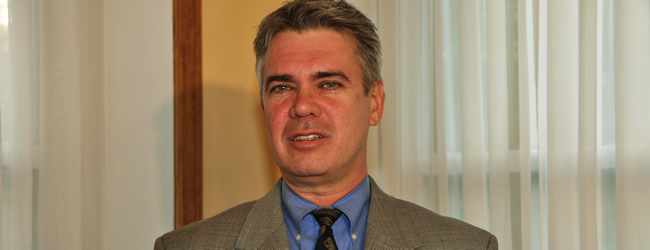

Michael Guest, former U.S. ambassador to Romania, headed a delegation during the human rights portion of an annual conference for the Organization for Security & Cooperation in Europe. (Blade photo by Michael Key)
A gay diplomat led a U.S. delegation at an international conference earlier this month that touched on the importance of LGBT rights as a human rights issue.
Michael Guest, former U.S. ambassador to Romania, headed a delegation of about 25 U.S. diplomats during the human rights portion of an annual review conference for the Organization for Security & Cooperation in Europe. The review conference took place between Sept. 30 and Oct. 8 in Warsaw, Poland.
The Warsaw Review Conference was a primer engagement for trans-Atlantic countries to discuss human rights principles — including hate crimes against LGBT people and the freedom to association to have Pride celebrations across the globe — in anticipation of a later OSCE summit that this year is set to take place in December in Astana, Kazakhstan.
In an interview with the Washington Blade, Guest said that his sexual orientation made his designation as head of the delegation representational of the Obama administration’s stated principle that international LGBT rights are human rights.
“I also think that it made an impact with other delegations,” Guest added. “It was clearly a prominent feature of my biography, so there were a number of delegation members that come and it’s representative in their eyes as a sense of progress that an openly gay man would be appointed.”
Still, Guest said he thinks his 26-year service as a diplomat was the primary reason he was selected for the position and noted that during much of his career he focused on OSCE policy.
“I dealt with it at the time when all these changes were happening in Europe in 1989, 1990 and 1991 and when most of the commitments on fundamental freedoms and human rights were signed by the newly independent countries of the former Soviet Union and the new democracies of Central and Eastern Europe,” he said.
Guest attained notoriety in 2007 when he retired from the State Department in protest because it didn’t offer certain benefits — such as security training and free medical care — to the same-sex partners of Foreign Service officers. The situation has since been rectified by Secretary of State Hillary Clinton.
Mark Bromley, chair of the Council for Global Equality, which took part in the review conference as an non-governmental organization, said the selection of an out gay man to lead the U.S. delegation was significant because previous administrations have been reluctant to incorporate LGBT issues in foreign policy.
“The United States in the past has been reluctant to address LGBT concerns within this forum,” Bromley said. “I think the fact that they selected Michael Guest as someone who is openly gay and works with organizations that promote issues on the basis of sexual orientation and gender identity was an important statement.”
The OSCE was established in 1975 after 35 trans-Atlantic countries, including the United States and the Soviet Union, signed the Helsinki Accords and agreed to take part in annual meetings. During the Cold War, the OSCE served as a forum where the United States could raise human rights and security issues with Warsaw Pact countries.
But Guest said the tone of the conference has changed since the collapse of the Soviet Union in 1991 to become less of an East-West dialogue and more of a pan-Atlantic conversation.
“It’s an opportunity to look at what has been done and is being done on human rights issues ranging from migration to freedoms of assembly and freedom of religion, to human trafficking, to capital punishment, to gender balance to hate crimes and intolerance — the whole range of human rights related issues,” Guest said.
During the course of the discussion on human rights, Guest impressed upon the 56 participating states in the conference the importance of inclusion of LGBT rights as human rights issues.
The former ambassador mentioned LGBT issues during his opening statement at the conference’s plenary session, including bias-motivated violence against LGBT people and the right to freedom of association at Pride celebrations. Such activities in Eastern Europe, where the conference took place, are often the targets of hostility and violence.
Guest lamented human rights abuses such as “when civil society assemblies are denied permits on spurious grounds, or police allow bigots to attack Gay Pride parades.” The former ambassador also acknowledged the United States has more to accomplish on human rights issues because “equality under the law continues to elude those of us who are gay or transgender.”
During a later discussion, Guest also appealed to governments in attendance to implement hate crimes protections measures and recalled his own personal experience as the victim of bias-motivated violence.
After a hostile non-governmental organization equated homosexuality to pedophilia and necrophilia at the end of the meeting, Guest responded that the connection was offensive and such inflammatory allegations can be responsible for hate crimes.
Guest told the Blade he raised LGBT issues during the conference because he believes they should be brought up in any comprehensive discussion of human rights.
“We raised it in questions of freedom to assembly, freedom of association and in the course of the discussions on hate crimes and tolerance,” he said. “We had some good news stories to tell from the standpoint of the United States, such as the passage of the Matthew Shepard Act and the overall trend in hate crimes going down, but the negative, of course, being that the reported number of LGBT hate crimes and hate crimes against immigrants has, in fact, gone up.”
LGBT issues were also raised by non-governmental institutions at the conference, including the Council for Global Equality.
Bromley delivered a statement at the conference on behalf of his organization — as well as two European international LGBT right groups — that called for passage of hate crimes protections in other countries as well as the decriminalization of sodomy.
Emphasizing the importance of accurate documentation and effective prosecution of bias-motivated violence against LGBT people, Bromley said hate crimes won’t go away as long as countries have anti-gay statutes on the books.
“As a first step, we call on all participating states in the OSCE region to remove any laws that continue to criminalize homosexual conduct or identity or the public dissemination of scientifically supported information on homosexuality and sexual health,” Bromley said.
Bromley told the Blade that discussion of LGBT rights at the conference was significant because the U.S. delegation had only begun to bring up such issues last year after the start of the Obama administration.
“We’re very pleased to see that level of emphasis from the head of the delegation, but a number of other governments also spoke to the issue, so it’s certainly gaining ground and giving additional attention to LGBT hate crimes,” Bromley said.
The delegations from other countries and other non-governmental organizations at the conference responded to the U.S. delegation’s promotion of LGBT rights in varied ways. Guest said the session in which he spoke personally about hate crimes issues caused delegations from other countries to take note.
“It was a very quiet session,” Guest said. “People were listening very quietly, and a lot of people did respond specifically to what I said including non-governmental organizations. A number of delegations told us afterwards — either to me directly or others on the team — how that more personal approach really had resonated with them.”
Guest said a representative from the Catholic Church in Vatican City was among those that approached him afterward and mentioned that talking about hate crimes in a personal manner was “a way that we could build bridges.”
But Guest said the outcome was different for discussions of freedom of association and the right to hold Pride celebrations. The former ambassador speculated these talks made less of an impact on the delegation because they had already come up at last year’s conference.
“I think it’s just that because Gay Pride issues have come up before, there were some delegations that maybe expected it and maybe didn’t really reflect as much as might otherwise be the case,” Guest said.
So-called “ex-gay” groups and other organizations hostile to LGBT rights were also present.
Bromley said Redeemed Lives, a Christian ministry, spoke out at the conference about bias-motivated violence against “ex-gay” people for giving up what the ministry called a “homosexual lifestyle.”
“That was somewhat alarming to see a strong showing of ex-gay activists who were waving issues that were, as far as I know, not legitimate concerns,” Bromley said. “I don’t doubt that there could be violence directed at ex-gay individuals, but I never heard of any reports to that effect.”
Reparative therapy programs that seek to change sexual orientation have been widely discredited by major medical and psychiatric associations around the world.
A spokesperson for Redeemed Lives deferred comment to a statement the organization made at the conference, which was published on the OSCE website. In the statement, Mario Bergner, director of Redeemed Lives, stresses the importance passing legislation to protect the free speech of Christian academics and clerics to “teach the sexual morality of their faith traditions” so that they can help those with “unwanted sexual desires.”
“Such people include Christians with sexual addictions for whom freedom means living free of internet pornography, Christians with compulsive sexual behaviours for whom freedom is fidelity in marriage, and Christians, like myself, with unwanted same sex attractions for whom freedom is the self emancipation that comes through effective pastoral care or psychological treatment for homosexuality,” Berger said.
Bromley said the organization’s concern about hate crimes against people who identify as “ex-gay” is ironic because the Matthew Shepard Act already protects them.
“It would actually be covered under our current hate crime law because it would still be violence on the basis of sexual orientation,” Bromley said.
But the conference nonetheless provided a forum to discuss international LGBT rights as a human rights issue.
Guest noted progress was made at the conference, although he said more work is needed.
“I think there are moments like that where you feel that you are making headway in getting people to understand that these are issues that governments have to take seriously,” Guest said. “And then, there are other times where it seems to go right past — certainly on some the freedom of association things.”
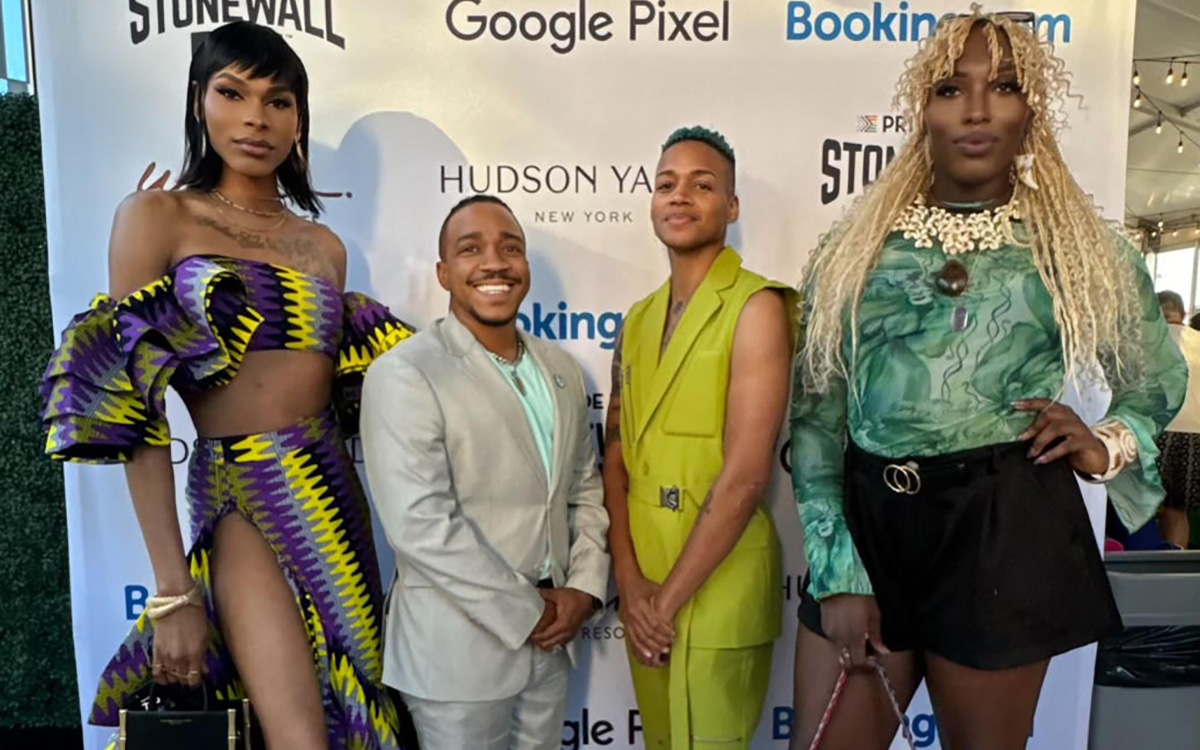
It is common knowledge that women earn 84% of the average worker. Less common knowledge? Trans women earn 60% of the average worker. Trans men and non-binary people come in at around 70%, while 16% of all trans people make less than $10,000 annually.
E.C. Pizarro was lucky, and he knew it. He had a BFA in graphic design and had taught himself how to code. As a stealth trans man in a corporate job, he had access to a stable wage and good benefits. “People that do not have experiences in corporate America or with equitable employment don’t realize [these things] are privileges that a lot of people don’t have access to.”
He wanted to give back and was gearing up to bring more volunteer work into his life by participating in a fraternity for trans men. When he went to a TransTech event and learned about the educational and career resources for trans people who face barriers to entering the workforce, he knew he had found his place.
At the event he met, Angelica Ross. Yes, that Angelica Ross, of “Pose” and “American Horror Story.”
Before she was Candy, Ross was a self-taught coder. She went from posing for an adult website to doing its back-end coding to teaching her trans siblings how to succeed in tech.
“Technology was the key to my freedom,” Ross said in an interview with The Plug. “Technology took me from being exploited on someone’s website to building my own websites and to building websites for other people and getting paid to do so.”
Pizarro was impressed and wanted to help. “I went up to Angelica and I was like ‘Hey, I’m a trans man. These are my skills. I’m down to volunteer and do any type of work—the one caveat is that I’m stealth. You can’t tell anybody that I’m trans.’”
For four years, Pizarro helped from mostly behind the scenes, sometimes getting side-eyed since people thought he was a cis man in trans spaces. “I was still stealth as the Director of Social Media and Communications for the National Trans Visibility March in 2019,” Pizarro says, chuckling a little.
But by that point, Ross — who headlined the 2019 march — was overextended trying to balance being a world-famous actress, advocate, and businesswoman.
She needed someone to step in as executive director of TransTech and looked to the group of dedicated volunteers. Pizarro was elected by his peers to take the reins of the organization.
This was a turning point for Pizarro. “I’m very passionate about tech and for me a small sacrifice of being open with my trans experience to liberate other trans people,” he said. “I felt like if that’s something I got to do, then I’m gonna do it.”
And he did it. The infrastructure Ross put together worked: with mentorship, education, community, and networking with trans-accepting employers, trans people were gaining financial security and independence.
So, Pizarro focused on expanding TransTech as widely as possible. “We have grown exponentially over the last three years,” he says. “When I took over in 2021, we had about 800 members based in the United States. Now we support over 6,700 members across 50 countries.”
TransTech is filling a demonstrated need within specifically the trans community. New research from LGBT Tech found that 68% of transgender adults use the internet to find LGBTQ-friendly employment (compared to 38% of cisgender LGBTQ+ adults). More than 70% of all LGBTQ adults use the Internet to access educational content.
Accessibility is central to the TransTech programming. Despite the growth, everything remains free. “There’s no membership fee. All of our programming is free. All of the certifications and educational resources are free,” Pizarro says.
They know the financial burden the trans community faces — 29% of trans adults live in poverty. “If we’re asking anyone to up-skill [for a cost] and these are the things they are going through, we are asking them to invest in their future versus their meal today.”
Pizarro believes that accessibility is more than just making the training free. He wants the community to understand that tech work is something they are innately capable of doing.
“TransTech was built on the foundation of nontraditional tech. It’s not always coding. It’s graphic design. It’s social media. It’s video editing. It’s anything that uses a piece of technology and nowadays almost everything uses a piece of technology,” says Pizarro.
He emphasizes to participants: “You’re in tech and you don’t even know it,” pointing out how many already utilize tech skills like marketing and monetization with their social media accounts.
Some people involved in the programming are nervous about entering the “tech world” because of headlines about tech layoffs. He makes sure to emphasize that unlike in some other jobs, tech companies often pay generous severance packages, which gives employees “breathing room.” Pizzaro explains that “once you have experience with one tech company, you can go someplace else and make a substantial amount of money as well.”
While TransTech is designed for the gender-diverse community, the programming is open to everyone Pizarro explains. “We just ask that you don’t be transphobic.” (Or any of the other -phobics too, he says, listing them off.) He also emphasizes that this allows trans members who are not out to comfortably participate.
Pizarro wants everyone to understand that they don’t just belong in tech, but they make tech better. “Tech is most profitable when you have diverse people building the tech and using the tech,” Pizarro says. “There is an intentional funding as well as support to diversity tech because they understand how that impacts the product.”
He also reminds participants that they have developed transferrable skills in every part of their lives. “I like to tell people if you can manage your life as a trans person in the United States or anywhere you can manage a project.”
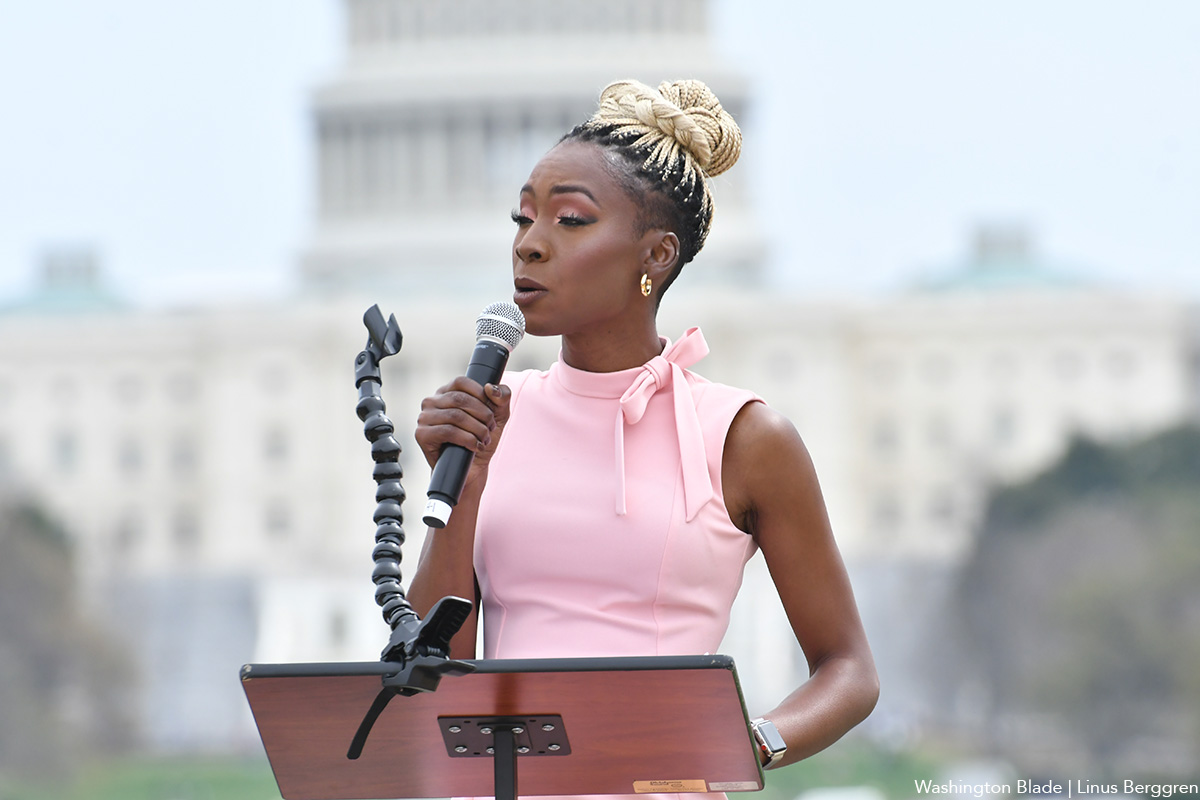
District of Columbia
Fire by arson forced temporary shutdown of Glorious Health Club
Spa and art gallery catering to gay
men expects to reopen in August
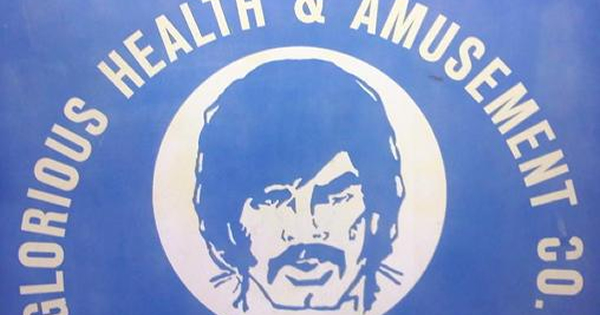
In a little noticed development, D.C.’s Glorious Health Club, which bills itself as a spa, art gallery, and community center catering to gay men, was forced to close on May 19 after one or more unidentified suspects ignited a fire inside the club that D.C. fire department officials have ruled an act of arson.
Robert Siegel, the club’s owner, told the Washington Blade that he and investigators with the D.C. Fire and Emergency Medical Services Department believe one or more yet unidentified suspects broke into the kitchen of the former warehouse building where the club is located at 2120 West Virginia Ave., N.E.
According to Siegel, investigators with the fire department’s arson squad believe a flammable liquid was used to start the fire in the kitchen and in two other locations within the building.
“Three separate fires were started,” Siegel said. “They started one on a staircase and one on the upstairs storage area,” he said in addition to the one in the kitchen. He said about 40 patrons were in the club at the time the fire started, and all were able to leave without injury.
Siegel said the fire caused $500,000 worth of damage to his building, with some of the damage caused — understandably he said — by fire fighters who had to rip open doors and break through the roof to gain access to the flames that engulfed parts of the interior of the building. He said he arranged for repair work to begin after the fire was extinguished.
“I expect we’ll be reopening in about a month from now,” he said. “And we’ll be a bigger and better place.”
Fortunately, Siegel said, most of the artwork and art exhibits located in the club were not damaged.
“It was basically the kitchen, patio, and the roof,” he said, adding that much of the solar panels he had on the roof were destroyed by the fire or by firefighters seeking to gain access to the building.
“And the fire was so hot it did structural damage to the roof,” he said. “It actually melted steel. We’re talking about 50-foot steel beams that have to be replaced,” he told the Blade. “That’s $100,000 right there.”
Vito Maggiolo, a spokesperson for the D.C. Fire and Emergency Medical Services Department, said the fire was “ruled incendiary/arson” and is “under active investigation.”
It could not immediately be determined if one or more people responsible for the fire targeted the Glorious Health Club because it’s a gay community establishment.
National
House Republicans propose steep cuts in federal AIDS budget
Advocacy groups say move would eliminate ‘Ending HIV Epidemic’ initiative

The Republican-controlled U.S. House Subcommittee on Labor, Health, and Human Services, Education, and Related Agencies approved a spending bill on June 26 that calls for cutting at least $419 million from federal AIDS programs that AIDS activists say would have a devastating impact on efforts to greatly reduce the number of new HIV infections by 2030.
The subcommittee’s proposed bill, which includes billions of dollars in cuts in a wide range of other federal health, education, and human services related programs, is scheduled to be considered by the full House Appropriations Committee on July 10. Officials with AIDS advocacy groups say they are hopeful that the full committee, like last year, will refuse to approve the proposed cuts in the AIDS budget.
The proposed GOP cuts would eliminate $214 million from the U.S. Centers for Disease Control and Prevention’s HIV prevention programs, $190 million from the Ryan White HIV/AIDS Program, and $15 million from the Department of Health and Human Services Secretary’s Minority HIV/AIDS Program.
Activists say the impact of those cuts would kill the federal government’s Ending the HIV Epidemic initiative, which among other things, calls for reducing the number of new HIV infections in the U.S. by 75 percent by 2025 and by 90 percent by 2030. The activists point out that ironically the Ending the HIV Epidemic initiative was launched during the administration of President Donald Trump.
“Instead of providing new investments in ending HIV by increasing funding for testing, prevention programs, such as PrEP, and life-saving care and treatment, House Republicans are again choosing to go through a worthless exercise of cutting programs that the American people depend on and will never pass,” said Carl Schmid, executive director of the HIV + Hepatitis Policy Institute.
“While we vigorously fight these cuts, we look forward to working with the entire Congress in a bipartisan fashion on spending bills that can actually become law,” Schmid said in a statement.
Schmid noted that the bill also includes provisions known as “policy riders” that would take away rights and protections from women, such as access to birth control and abortion, and for minorities, including LGBTQ people.
According to a statement released by the office of Rep. Rosa DeLauro (D-Conn.), who is the ranking minority member of the House Appropriations Committee, one of the policy riders would “block the Biden administration’s policies to ensure nondiscrimination on the basis of gender identity and sexual orientation.’ The statement says another policy rider would “prevent policies or programs intended to promote diversity, equality, or inclusion.”
Most political observers believe the Democratic-controlled U.S. Senate would also kill the GOP proposed policy riders and cuts in the AIDS budget if the full Republican-controlled House were to approve the budget bill passed by the appropriations subcommittee.
Rep, Tom Cole (R-Okla.), who serves as chair of the full House Appropriations Committee, released a statement on June 27 defending the subcommittee’s bill and its proposed spending cuts. “The bill provides appropriate and fiscally responsible funding to ensure these departments can continue to perform their core missions while also acknowledging the fiscal realities facing our nation,” he said.
“Importantly, the bill pushes back on the Biden administration’s out-of-touch progressive policy agenda, preventing this White House from finalizing or implementing controversial rules or executive orders,” Cole said in his statement. “It also preserves long standing bipartisan policy provisions protecting the right to life.”
-

 Canada3 days ago
Canada3 days agoToronto Pride parade cancelled after pro-Palestinian protesters disrupt it
-

 Baltimore5 days ago
Baltimore5 days agoDespite record crowds, Baltimore Pride’s LGBTQ critics say organizers dropped the ball
-

 Politics1 day ago
Politics1 day agoHRC slams White House over position opposing gender affirming surgeries for minors
-

 U.S. Supreme Court2 days ago
U.S. Supreme Court2 days agoConcern over marriage equality in US grows two decades after first Mass. same-sex weddings

